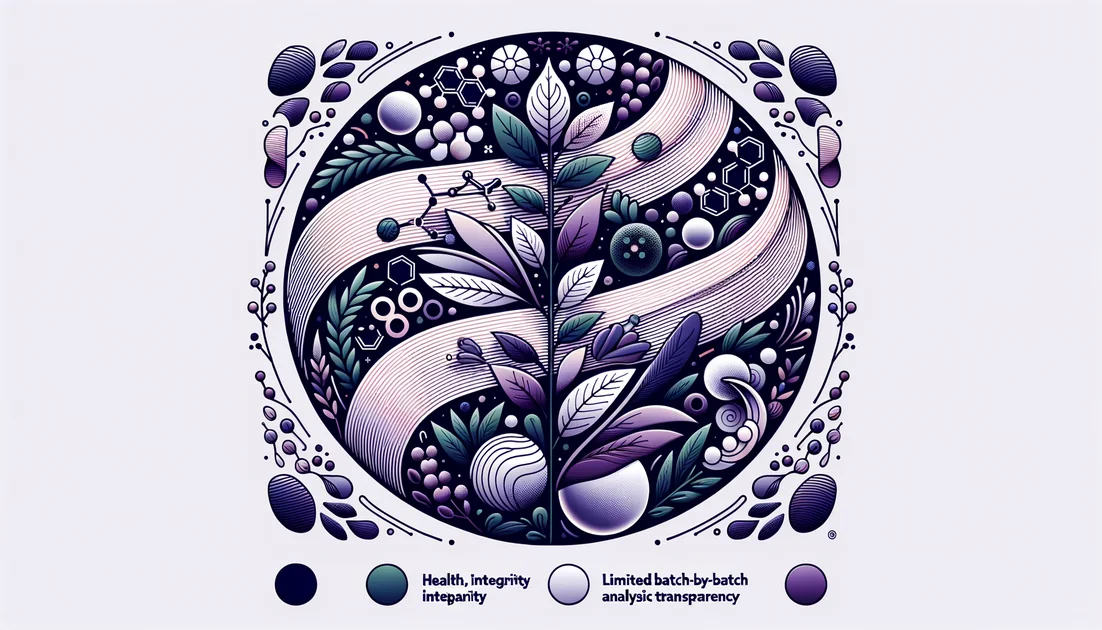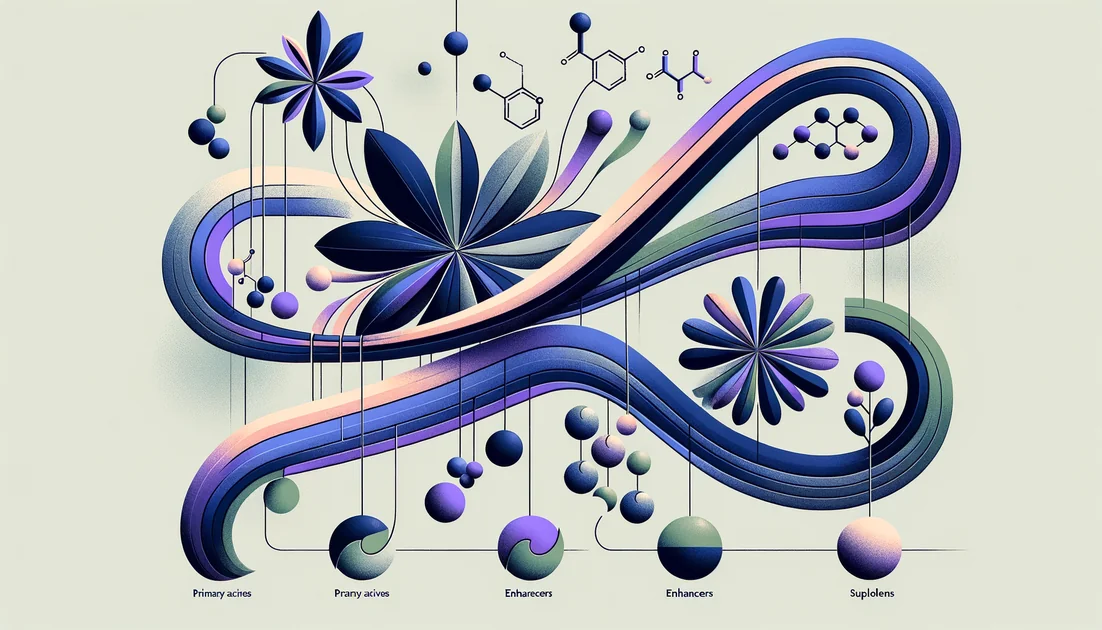
The Paradox: A transparency-forward supplement brand with uneven third-party verification and compliance signals
Our Verdict
Comprehensive analysis shows a nuanced brand. On one side: a visible COA culture and, at least for some products, ISO-17025 third-party potency verification—concrete steps many budget brands still skip. On the other: historical regulatory friction (an FDA Warning Letter for drug claims), a live Prop 65 lead notice on several botanicals, and outside lab reports flagging under-potency or labeling confusion on select items. Bottom line: Double Wood can deliver solid value when you buy SKUs with posted, lot-matched third-party potency PDFs; but risk-averse buyers or athletes needing higher-assurance certifications may prefer alternatives with NSF/USP programs or deeper, uniform batch transparency. [1][2][3][4][14][15].
How we investigated:We analyzed regulatory records (FDA, Proposition 65), the company's posted COAs and third-party reports, pricing and product pages, investor/ownership disclosures, and complaint patterns (BBB, Trustpilot, Reddit). Where claims were unstable or contested, we prioritized primary documents (FDA letters, lab PDFs) and identified whether testing was finished-product or 'by input' component testing.
Ideal For
- Shoppers who want posted COAs and occasional third-party potency PDFs at mid-market prices
- Ingredient-savvy users seeking specific raws (e.g., AstaReal, Magtein) without premium brand markups
Avoid If
- You require NSF/USP/USP-Verified or sport certification across your stack
- You prefer brands with lot-by-lot finished-product chromatography for every SKU
- You're buying from international third-party sellers where counterfeit risk is higher
Best Products
- Astaxanthin 12 mg (AstaReal)
- Fisetin 100 mg
- Magnesium L-Threonate (Magtein)
Skip These
- Phosphatidylserine until more potency data is posted
- Any SKU with only component-based COAs and no finished-product testing visible
Investigation confirms Double Wood posts Certificates of Analysis for products—and in at least some cases includes ISO 17025–accredited third-party potency tests—but independent industry testing has flagged underlabeling on certain items and the brand was named in a 2025 Proposition 65 lead notice, creating a split picture of quality control and transparency. [3][4][14][2].
Ranked by verified review count
Common Questions
Does Double Wood test every product in an ISO-accredited third-party lab?
The brand posts COAs for all products and provides third-party potency PDFs for some SKUs (e.g., Fisetin). Others rely on manufacturer COAs and component testing. [3][4][6].
Has Double Wood had recalls or FDA actions?
No recalls were found specific to Double Wood. FDA issued a 2020 Warning Letter (disease claims), and a Prop 65 lead notice was filed in 2025 for several botanicals. [1][2].
Is Double Wood good value?
Often yes for single-ingredient items (e.g., Quercetin vs. NOW pricing). Value is strongest when your chosen lot has a posted third-party potency PDF. [18][20][21][22].
What should I check before buying?
Open the product page's 'Certificate of Analysis' and 'Third-Party Test Results,' verify lab identity (ISO 17025), and confirm the lot number matches your bottle. [4][5][6].
Are Amazon purchases safe?
Counterfeits can appear via third-party sellers—especially outside the U.S. Buy direct or from the official Amazon seller and verify seals/lot numbers. [19].
What to Watch For
Watch for outcomes from the 2025 Prop 65 notice (settlement, reformulation, or labeling), any expansion of third-party potency postings across the catalog, and whether Double Wood formalizes certification footprints (e.g., NSF, USP) to match its transparency positioning.
Most Surprising Finding
An outside lab program reported a Double Wood phosphatidylserine lot at just 16% of labeled potency—illustrating why lot-matched third-party PDFs matter. [14].
Key Findings
Double Wood publishes Certificates of Analysis and, for some SKUs, links to ISO/IEC 17025–accredited third-party potency tests (e.g., Fisetin: Colmaric Analyticals). This is above the industry norm for public access, though coverage appears inconsistent across the catalog. [3][4][5][6].
Some manufacturer COAs show 'result is substantiated through component testing'—a 'by input' approach that verifies formula inputs rather than finished-product identity/potency, which is less protective for consumers. [3].
Independent industry testing has reported significant shortfalls for specific Double Wood items: NOW Foods' PS testing found 16%–45% of label claim on a Double Wood Phosphatidylserine lot purchased on Amazon; NaturPro's 'bad supplements' list flags Double Wood magnesium glycinate front-panel labeling (400 mg compound vs. 60 mg elemental) and shows ~69–71 mg elemental per cap (fits 60 mg claim but can mislead shoppers). [14][15].
What Customers Say
Service split: fast fixes vs. subscription/ friction
BBB shows both praise and frustration in 2024–2025 posts. [12][11].
"really impressed with the company and response."
"Very inconsistent and bad quality control."
Customer experience may depend on issue type; confirm terms for subscriptions and consider purchasing direct for support.
Perceived quality variance
Trustpilot contains both satisfied users and claimants of 'no effect' or contamination concerns. [13].
"Supplements have no effect whatsoever for us."
"We're very sorry to hear about your concern...please send order details."
Results vary; for sensitive categories, prioritize lots with posted third-party potency PDFs and consider brands with broader certifications.
Counterfeits risk on marketplaces
Forum reports of counterfeit Double Wood products in certain countries via 3rd-party sellers on Amazon; buy from official store or authorized sellers. [19].
"they don't sell supplements in my country and it is a counterfeit product"
To reduce risk, order direct or from the official Amazon storefront and inspect seals and lot numbers.
Expert Perspectives
NOW Foods' in-house and Eurofins testing report is a credible, detailed third-party benchmark for PS category quality, though it is a 2020 Amazon sample set rather than a 2025 snapshot. [14].
You might also like
Explore more of our evidence-led investigations, comparisons, and guides across every article style.

Core Nutritionals
Label-transparency leader, limited published testing: the Core Nutritionals paradox


Best for Weight loss
Green tea catechins + caffeine

L-Carnitine
A molecule named for flesh has a split reputation: in one ICU, it helps a failing heart wake up; in another clinic, the same molecule—filtered through the wrong gut microbes—turns into a chemical whisper linked with clogged arteries. Which story is true? Both.

Memory Stack With Real Clinical Data
Dual-core, theoretical synergy: both work on their own; together looks additive with plausible complementarity, but no direct human A+B head-to-head proof yet.

Tocotrienols
The stealthier cousins of vitamin E—built with springy tails that move differently in cell membranes and behave differently in your body.
